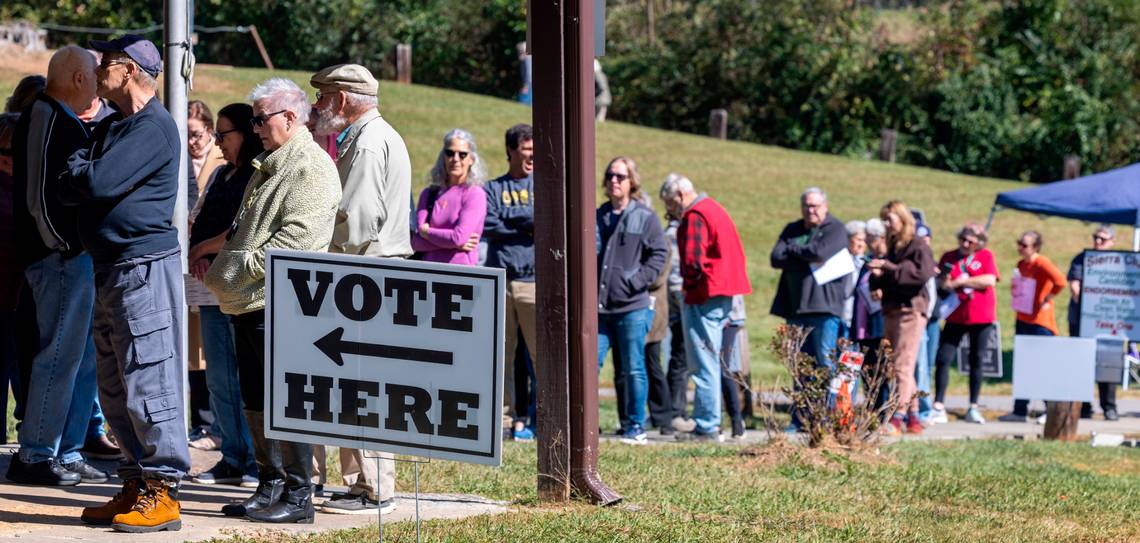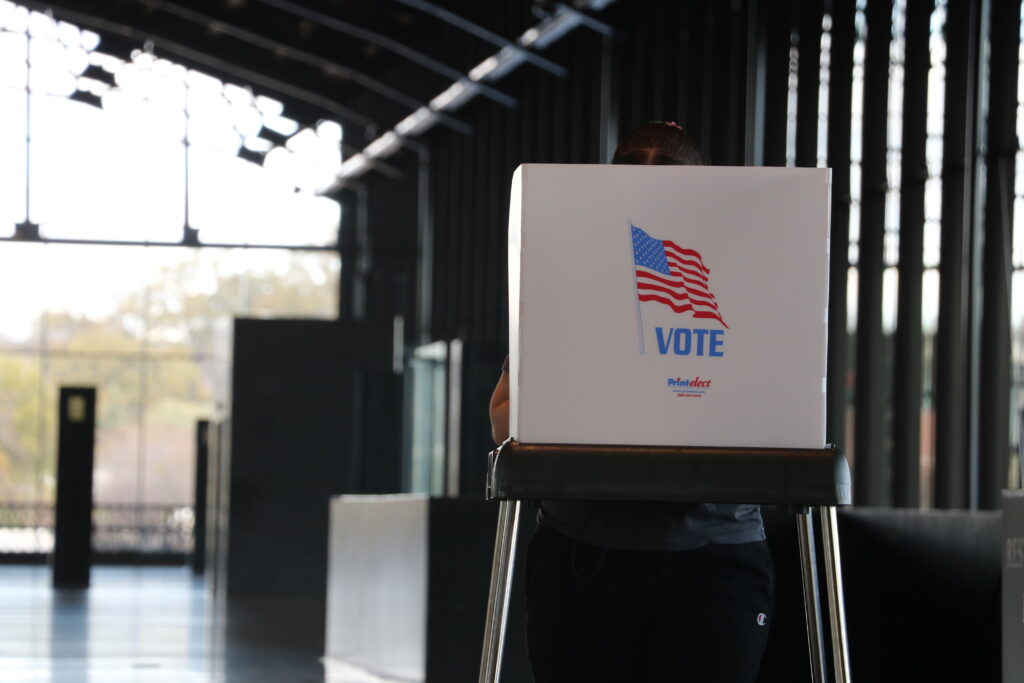
In the coming days, North Carolina’s State Board of Elections will direct election audits across all 100 counties before results are certified.
Activists, including a grassroots group with ties to a lawyer who helped try to overturn the 2020 election, are using data cobbled together from public sources in an attempt to do the same.
Some are gearing up to challenge North Carolina ballots before county boards certify the election Friday.
Experts warn that these efforts appear to use unreliable evidence of presumed election irregularities to undermine confidence in the final outcome. It’s a lingering effect of misinformation that mounted four years ago, said Ishan Mehta, director of the Media and Democracy Program at the government-watchdog group Common Cause.
“The foundation for everything we’re seeing is the ‘Big Lie’ that the 2020 election was stolen,” Mehta said at a media briefing last week. “And then everything sort of builds on top of it, like a Jenga puzzle.”
Posts on X about election fraud conspiracy theories waned when it became clear that former President Donald Trump would win the presidential race, the Washington Post reported. But now, some skeptics are shifting focus to suggest there was fraud in down-ballot races — while some on the left alleged there was fraud in the presidential race.
“It’s weird to me how many North Carolina voters decided to elect Democrats for Governor, Senator, and a whole lot of other positions, but they were like ‘nah’ to Kamala,” one user said on X in reference to Democratic presidential candidate Kamala Harris. He said activists shouldn’t lead an insurrection but should demand an investigation.
In fact, U.S. Senate races weren’t on the ballot this year. Both North Carolina senators are Republicans. It’s also not unusual for North Carolinians to cast a vote for presidential and gubernatorial candidates of different political parties.
Amateur auditing ramps up
One Anson County Facebook activist said Wednesday that he trained 28 “Election Contest Monitors” to comb through results for indications of election fraud. He has claimed there are discrepancies with the voter roll data files, which the State Board of Elections posts weekly, that must be remedied before results are certified.
The public data files from the state board are merely a snapshot of voter registrations at that point in time. They “do not have the granularity to capture every single change in voter registrations across the state,” the board’s spokesperson, Patrick Gannon, previously told The News & Observer.
And the state board has a system to prune its voter rolls. In fact, from the start of 2023 to August of this year, North Carolina counties removed roughly 1,200 registrations from the voter rolls daily. The Republican National Committee in August sued the state board over voter registrations it said were suspicious, but thus far, the suit hasn’t been successful.
North Carolina law requires the county and state boards to perform list maintenance by removing ineligible voters and updating the addresses of people who have moved within the state. Federal law also requires states to have a system to keep voter rolls up-to-date.
Still, ostensible issues in the data are fodder for people motivated by misinformation, said Stephen Prochaska, a doctoral candidate and graduate research assistant at the Center for an Informed Public at the University of Washington. In the past few years, groups have mobilized to build infrastructure that gathers evidence of alleged election interference to prove their thesis, he said.
One app crowdsources footage of vote totals from volunteers across the country. Another calls on voters to report election incidents to a public dashboard.
The North Carolina Election Integrity Team is part of a national network led by Cleta Mitchell, a lawyer who advised former President Donald Trump in his efforts to overturn the 2020 election. Mitchell was on the call Trump made to Georgia election officials asking them to find more votes for him. Jim Womack, the Lee County GOP chair, heads North Carolina’s team.
Womack, who made headlines last month when CBS reported that he told volunteers to flag “Hispanic-sounding last names” as potentially suspicious voter registrations, said he’s trained members to scour voter lists to find what could be ineligible ballots.
The group, which Womack said is nonpartisan, has prepared nearly two dozen ballot challenges. It’ll continue to investigate voters until Wednesday, which is the last day to challenge absentee ballots.
“Every vote must be scrutinized,” Womack told The News & Observer in an interview. “Every vote is sacred.”
The group uses a program called EagleAI, pronounced “eagle eye,” to streamline the process of finding ballots to question, Womack said. The tool, which compiles public data like death and property records, has helped election skeptics challenge voters en masse in other states. But it lacks access to private government data on voters, sparking concern that it could be used to threaten legal votes.
In July, NBC News reported that members of the North Carolina team found problems with the EagleAI data. One member called the tool “completely nonfunctional,” NBC reported, though Womack defended its use.
North Carolina law requires voters be challenged individually, so Womack said he doesn’t expect to lodge thousands of challenges.
In the past two months, the group’s membership exploded, Womack said. It boasts over 2,000 members, and he said in the final stretch leading up to the election, 30 to 40 people joined the ranks each day.
Under the Dome
Get the latest news about North Carolina politics from The News & Observer’s award-winning team. Get the free digest sent to your inbox by signing up here.
EMEA Tribune is not involved in this news article, it is taken from our partners and or from the News Agencies. Copyright and Credit go to the News Agencies, email news@emeatribune.com Follow our WhatsApp verified Channel




